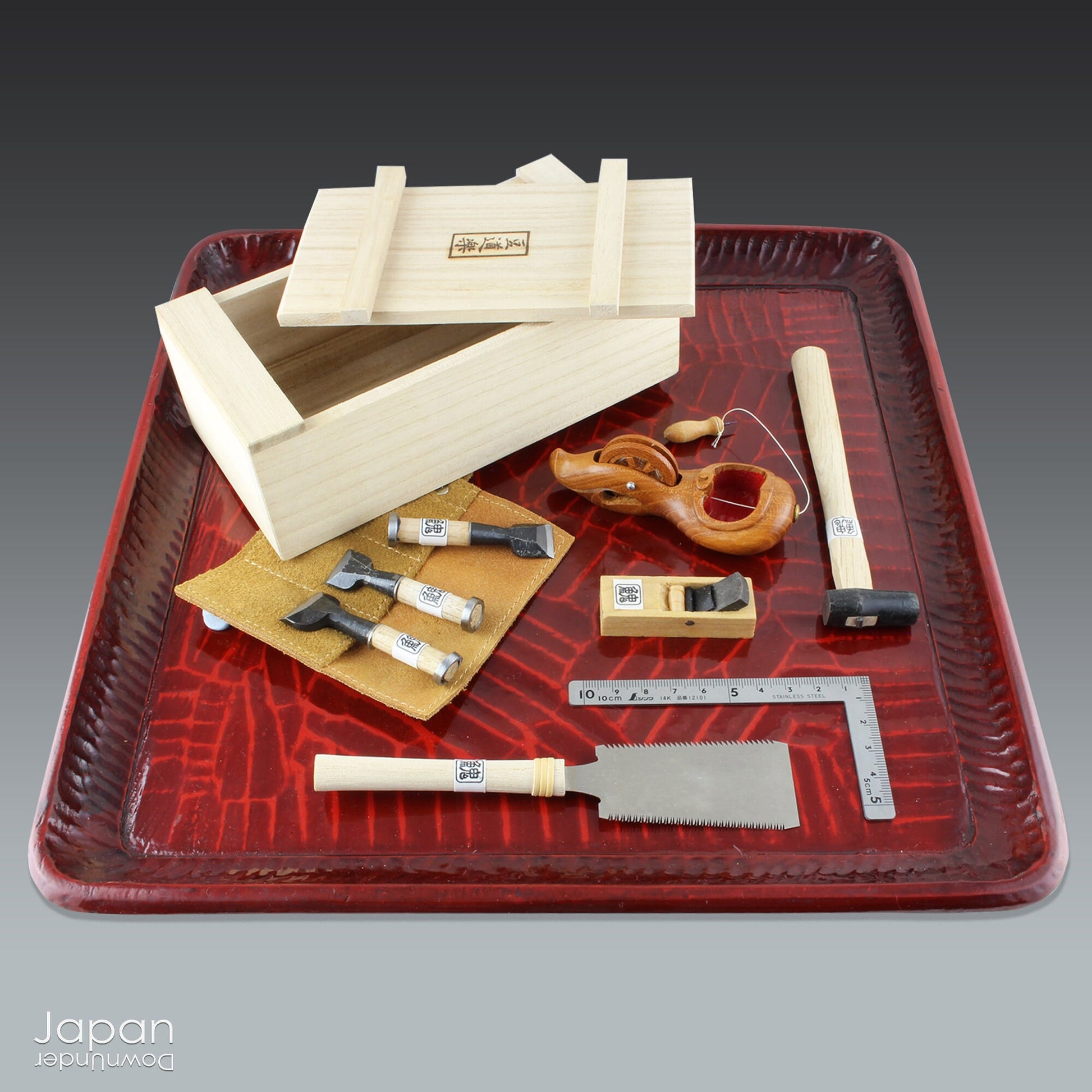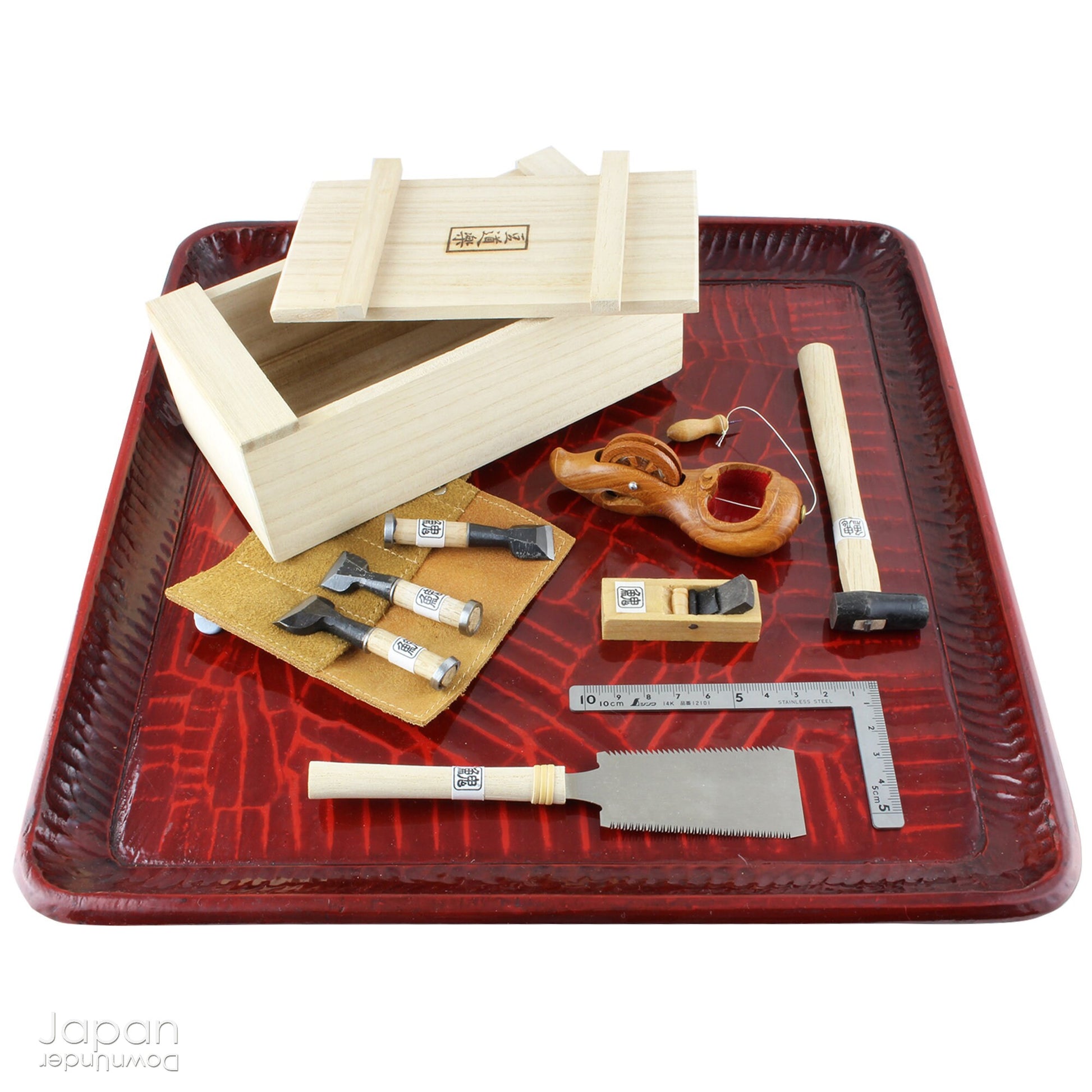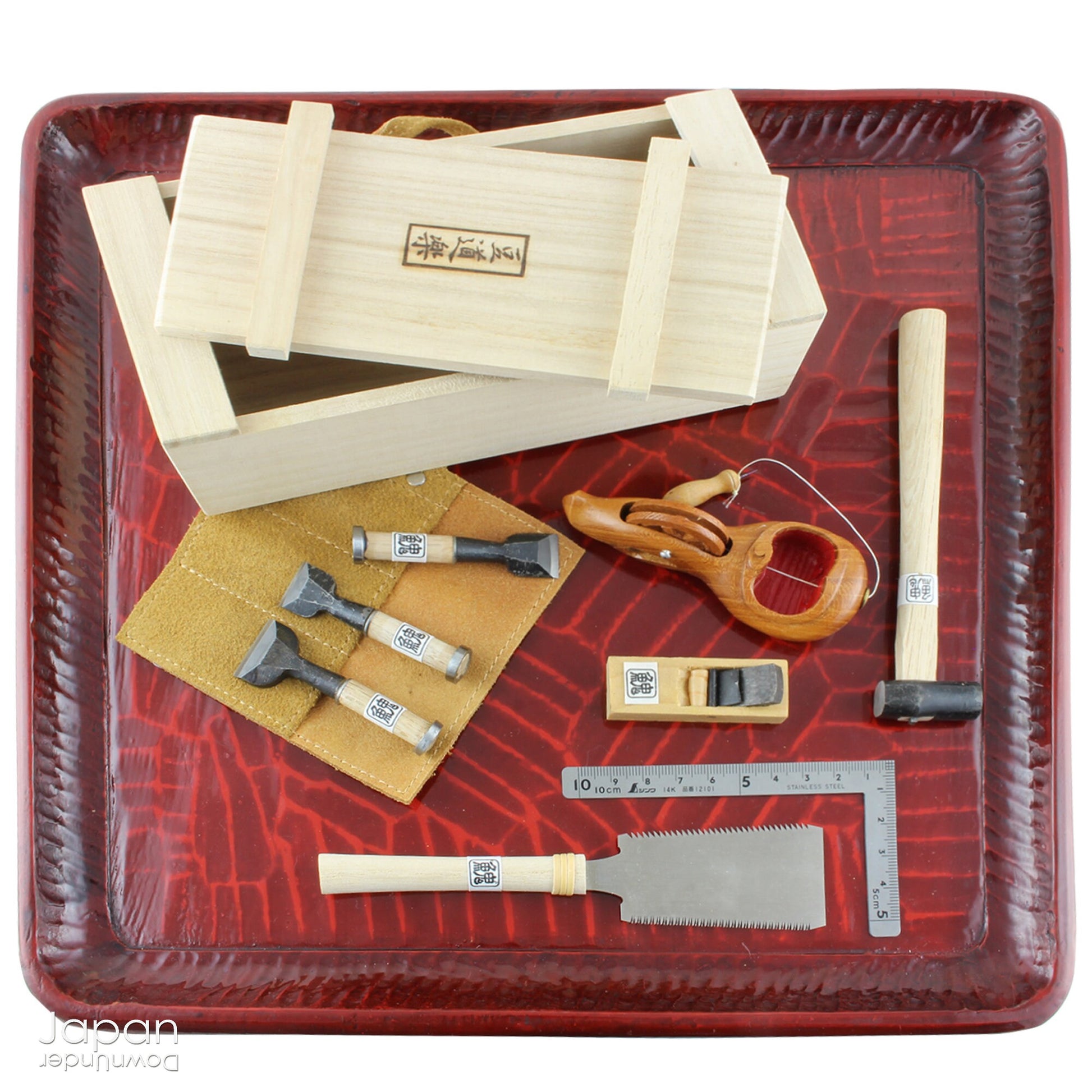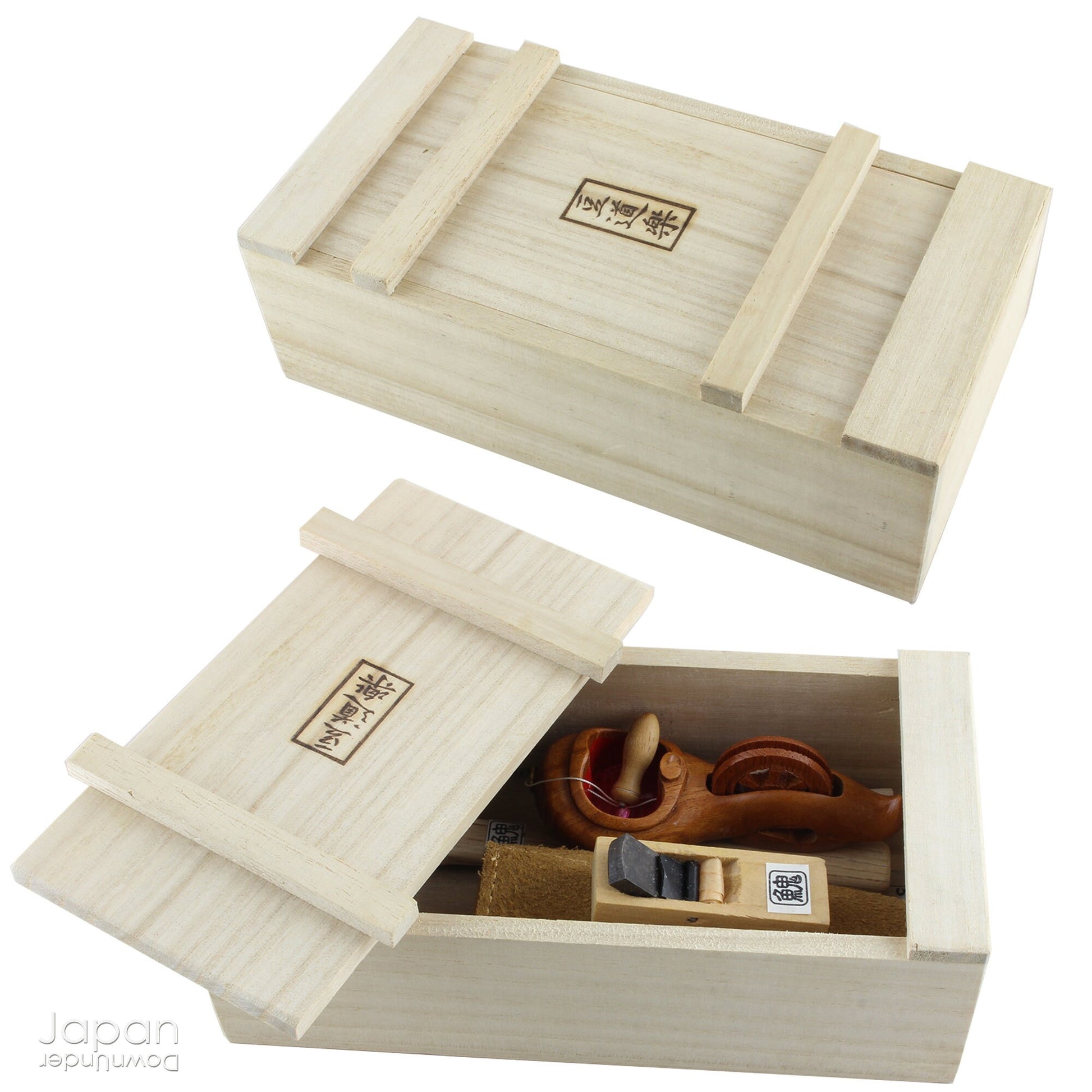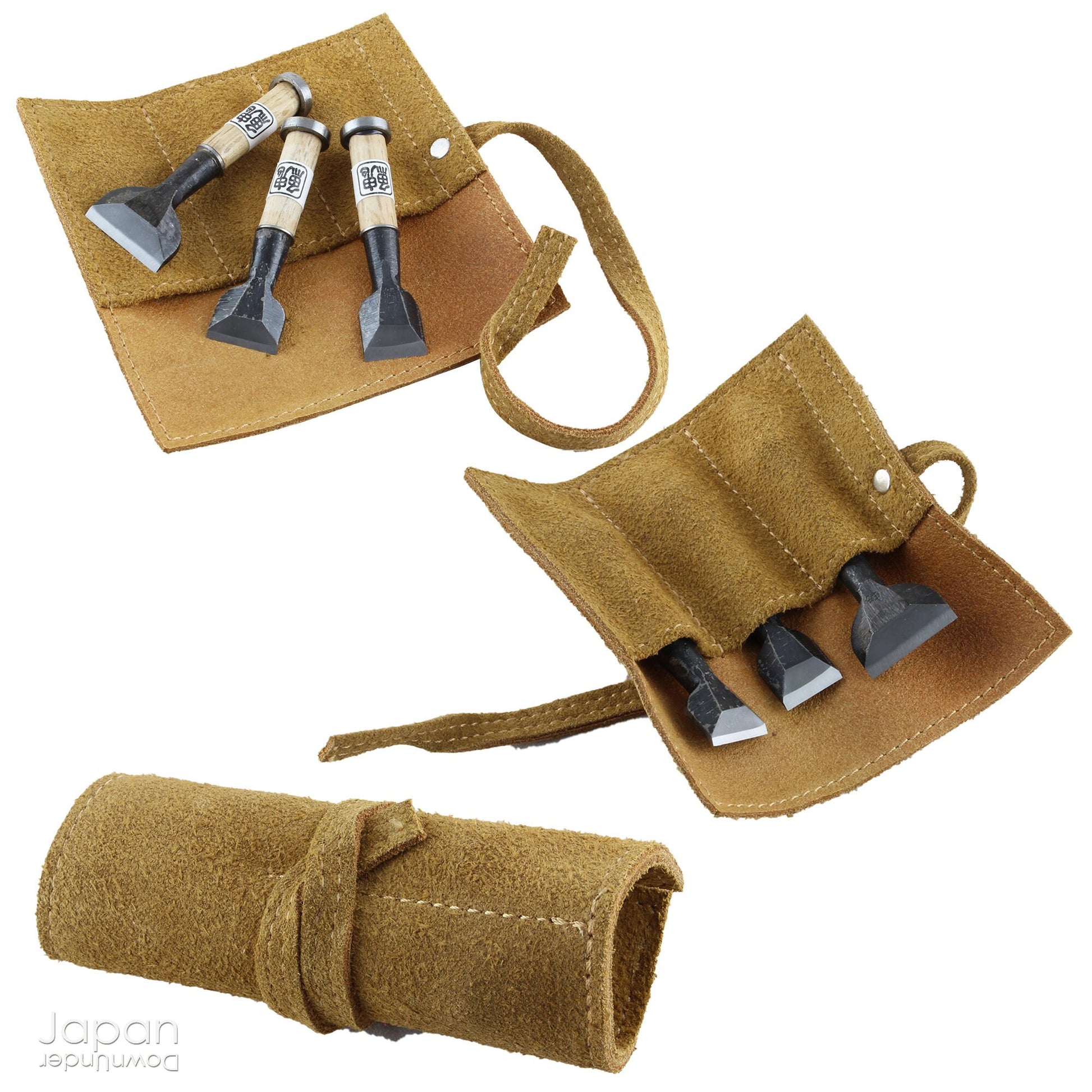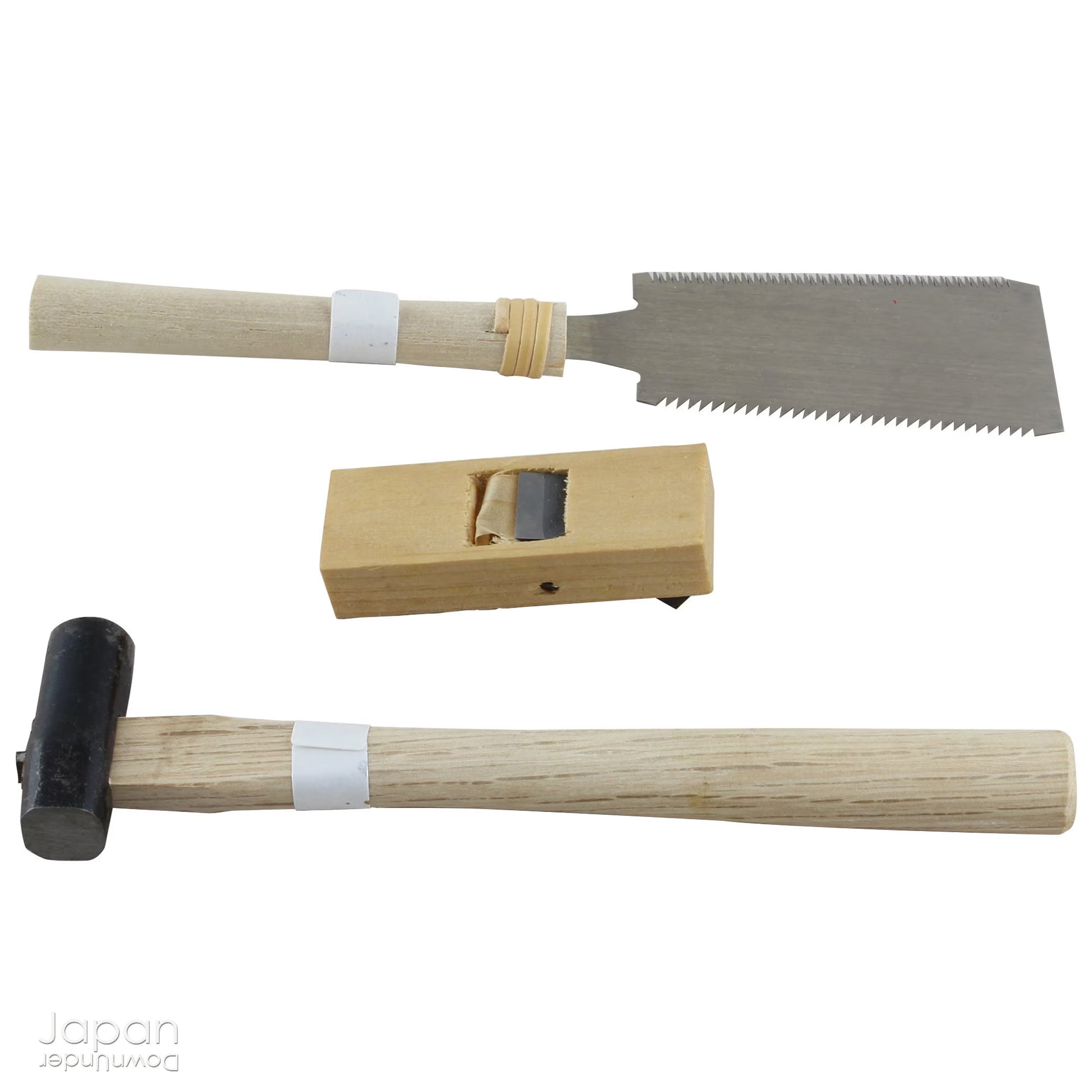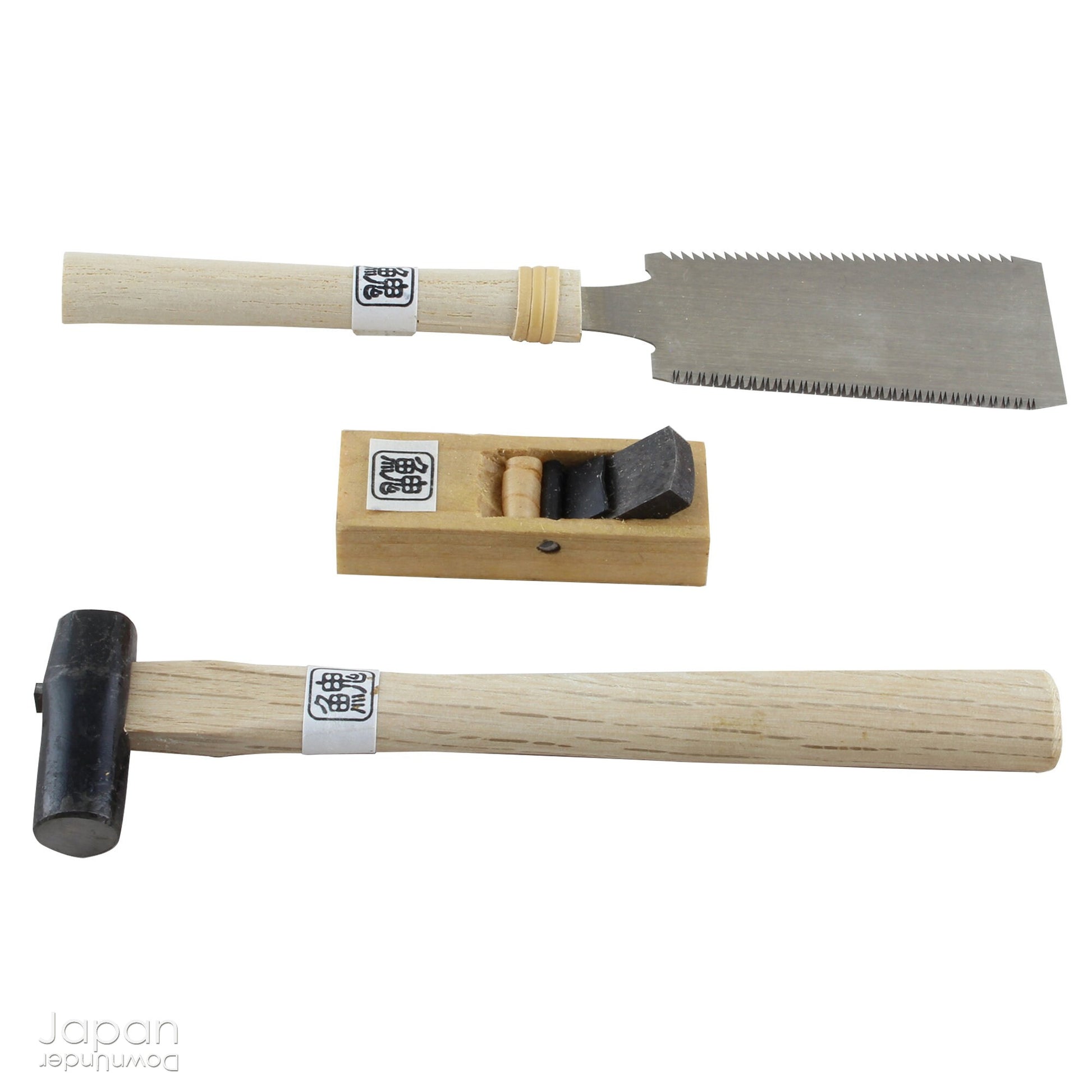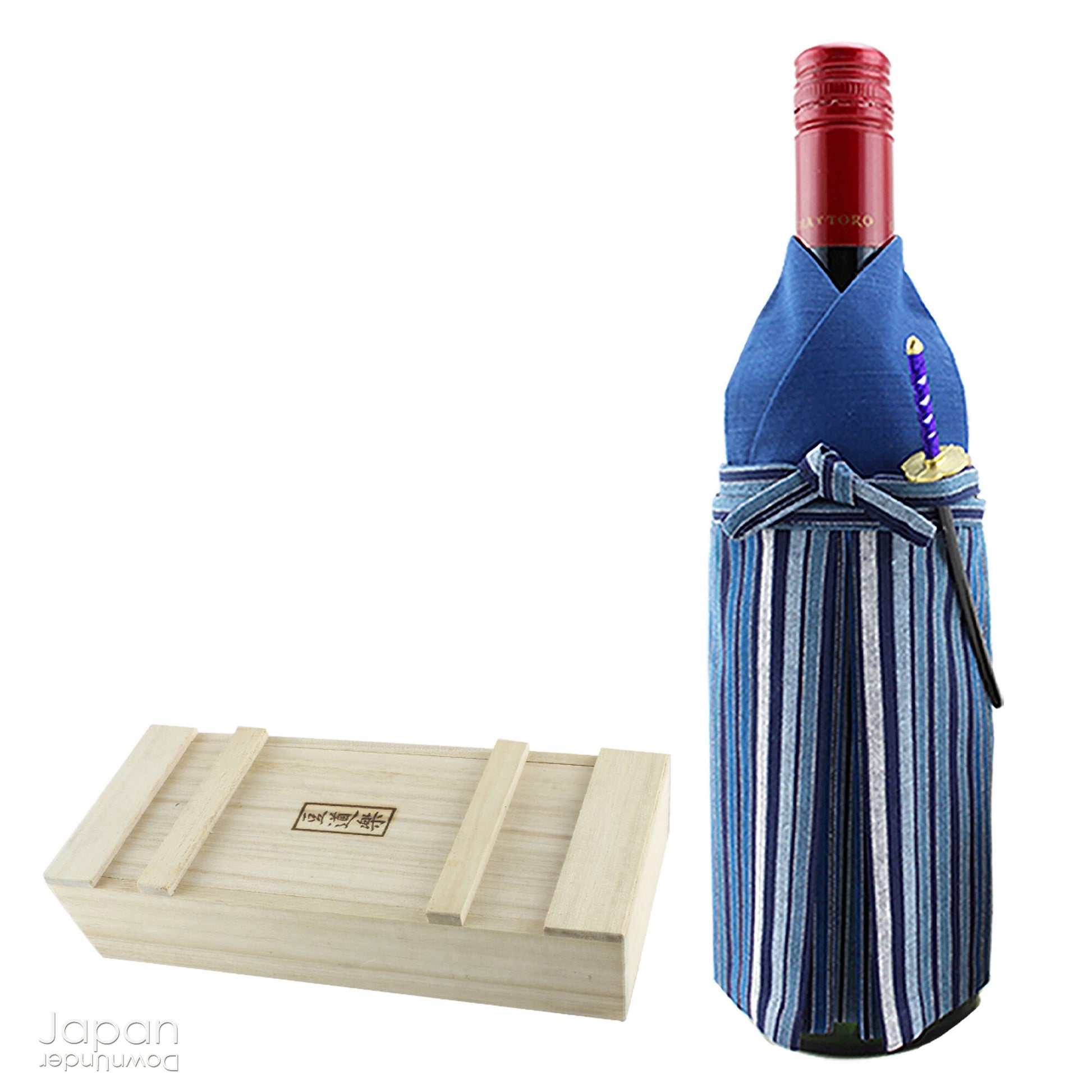JapanDownUnder
handcrafted miniature woodworking tools in traditional japanese tool box
handcrafted miniature woodworking tools in traditional japanese tool box
Couldn't load pickup availability
Love Japanese Style Like We Do
Discover the timeless beauty of traditional craftsmanship in miniature form with this exquisitely handcrafted Japanese carpenter tool set - perfect for collectors, woodworking enthusiasts, or anyone captivated by the charm of finely made miniatures.
In Japan, the appreciation for miniature objects is more than a fascination - it’s a deeply rooted cultural tradition. This love for the small and intricate blossomed during the Edo period (1603–1868), when government decrees encouraging modesty and frugality led to a ban on large decorative items considered excessive luxuries. In response, the people of Edo (modern-day Tokyo) found creative ways to craft scaled-down versions of beloved objects - each one just as delightful and intricate as its full-sized counterpart, giving rise to Japan’s enduring culture of miniatures.
Crafted to perfect scale, this miniature carpenter’s tool set is not only display-worthy but also functional for small precision work. Each tool is meticulously made using traditional techniques passed down through generations of master craftsmen in Miki City - one of Japan’s most renowned centers for tool making. Recognized in 1996 as a producer of traditional crafts by Japan’s Ministry of Economy, Trade and Industry, Miki City remains a symbol of exceptional skill and heritage.
The chisels are lovingly wrapped in a leather tool bag and presented together with other necessary tools in an authentic wooden carpenter’s toolbox. The lid bears the inscription “Mamedoraku” - a playful phrase meaning “not such a useful object, but a small indulgence that brings great joy.” Even the master craftsman who brought this project to life was moved to exclaim at its beauty and precision.
Set includes these handcrafted miniature tools:
- 3 Chisels (Nomi): 60mm long, with widths of 14.5mm, 17mm, and 23.5mm, nestled in a leather wrap
- Japanese Ink Line (Sumitsubo): 98mm long
- Handsaw (Ryoba Nokogiri): 65mm blade length
- Carpenter’s Square (Sashi Gane): 100mm x 55mm
- Smoothing Plane (Hira-Ganna): 54mm x 18mm
- Plane Hammer (Tsuchi): 140mm long
- Wooden Tool Box: 180mm x 89mm x 61mm
- Total Weight: 280 gm.
Whether you're searching for a unique gift for a skilled craftsman, a meaningful addition to a miniature collection, or a beautiful conversation piece steeped in cultural heritage - this miniature tool set is sure to delight.
(listing for boxed tool set only)
SHIPPING INFORMATION
- please read the shipping notes in our shop announcement.
- we use recycle packaging wherever possible and wrap for safety, rather than appearance!
ABOUT OUR VINTAGE ANTIQUE AND OTHER ITEMS
We list pieces we feel are worthy of display. There may be scratches, dents, fading and signs of wear and tear. We try to explain the condition of each item exactly, but may miss something.
Information regarding the item and it’s age is obtained from dealers and our personal research. We do our best to give you the correct information but please be aware that we cannot guarantee this information.
Please message us prior to purchase with any questions you may have about our products.
A NOTE ABOUT JAPANESE TOOLS AND UTENSILS (DOGU)
Japanese craftsmen have been skillfully producing hand made tools and utensils from long ago. With great attention to detail and a love and respect of their craft they have created beautifully simple, yet highly functional objects.
A special spiritual reverence was, and still is, attached to the making of these objects. The Japanese word for tools and utensils is ‘dogu.’ This was originally the word for an itinerant monks belongings. It alludes to the spiritual value which craftsmen put on their tools and utensils.
Reinforcing this spiritual value is the Shinto belief that the kami (spirits) dwell in natures’ objects, especially trees. (Many Shinto temples have sacred trees wrapped in a shimenawa; a rope that marks the boundary between the spiritual world and the mundane world). Most Japanese tools and utensils are made of natural wood from the craftman’s local area and craftsmen treat that sacred wood with the utmost of care in all stages of production. Special joint techniques, instead of using nails and glue that would spoil the wood, are utilized. These techniques actually make the produced object stronger, giving it a longer life and avoiding wastefulness.
Share









